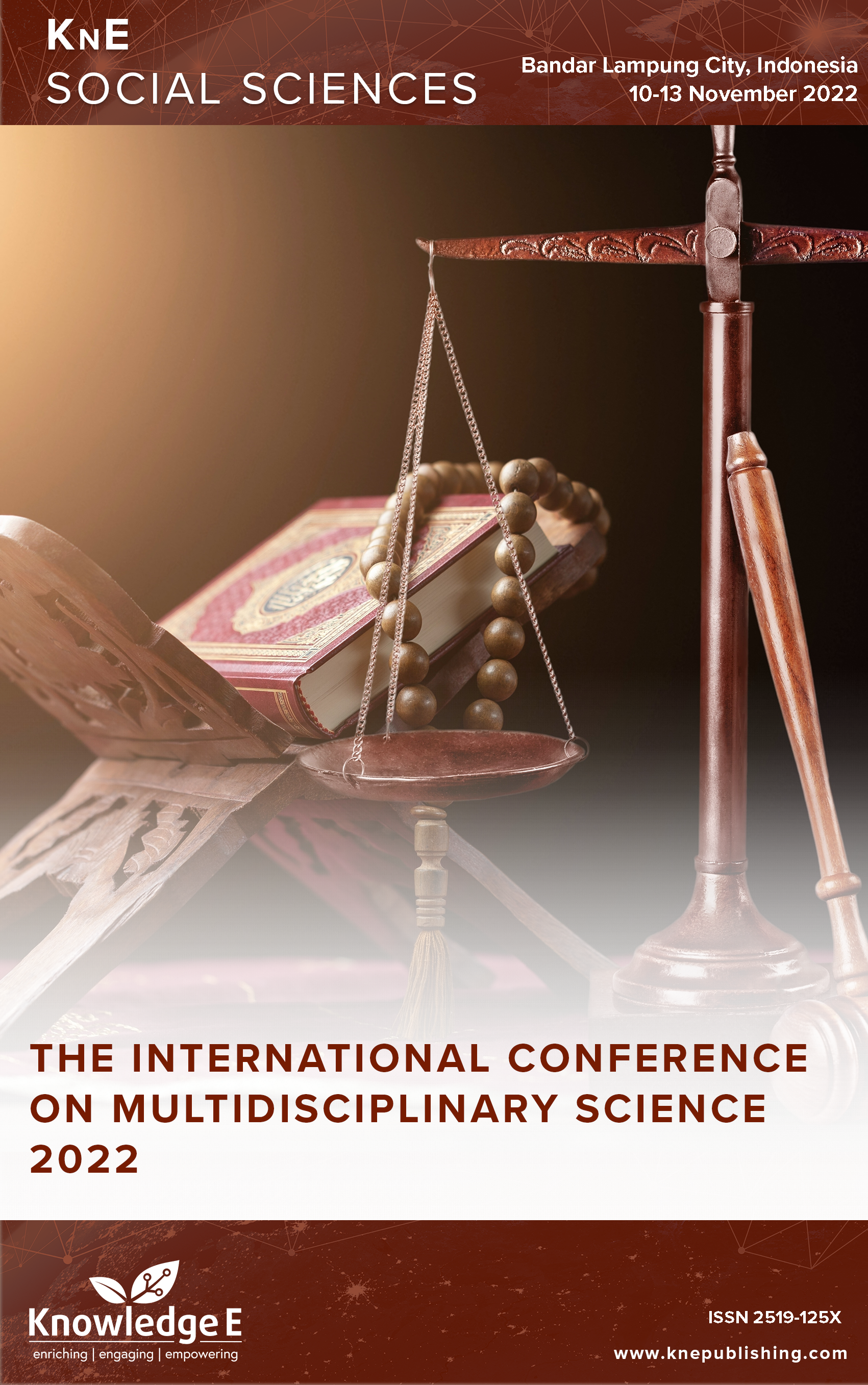University Student Perspectives on Collective Action through Social-Media Activity on Campus Democracy
DOI:
https://doi.org/10.18502/kss.v8i16.14062Abstract
Campus democracy is useful for creating a condition that allows all groups within the university (students, rectors, teaching staff, employees, and workers) to have equal rights in formulating policies, and the orientation of the implementation of education in tertiary institutions. However, implementing democracy in educational contexts, particularly in Indonesia, is still hindered by obstacles visible through the presence of some issues with democratic principles being violated. The purpose of this study was to examine and provide an overview of university student perspectives on collective action through social-media activity on campus democracy. This study utilizes qualitative research methods by deploying questionnaires, and uses documentation as data collection techniques. It studies the students of one university in Lampung as the subject of the research. The data collection was performed at different time intervals since depth comprehension through questionnaires is required in this study. The results indicated the importance of social media for students in campus democracy, one of which is to cultivate the student’s critical awareness of events that occur on campus. This refers to not only political collective action but also social collective action as well. Given the limitations of this study which only used students from one department on one campus, the researchers hope that further research with a similar topic in the future can expand this type of research to not only include students, but also intra-community interactions, and not only on a scale of one room.
Keywords: Campus’ Democracy, Collective Action, Students’ Perspectives, Social Media
References
[2] Atmaja DZ. PERAN PEMANFAATAN MEDIA SOSIAL. LLDIKTI Wilayah III. November 2019:1-73.
[3] Carter N, Bryant-Lukosius D, DiCenso A, Blythe J, Neville AJ. The use of triangulation in qualitative research. Oncol Nurs Forum. 2014 Sep;41(5):545–7.
[4] Dewey J. Democracy and Education. The Pennsylvania State University. 2001
[5] Elliott JE. Joseph A. Schumpeter and The Theory of Democracy. Rev Soc Econ. 1994;52(4):280–300.
[6] Given L. The SAGE Encyclopedia of Qualitative Research Methods. 2008. https://doi.org/10.4135/9781412963909
[7] Hairul N. Demokrasi Kampus. Lembaga Pers Mahasiswa PENDAPA Taman Siswa. 2019.
[8] Harrison K, Boyd T. Democracy. Democracy. 2018; https://doi.org/10.7765/ 9781526137951.00007
[9] Hasna S, Komunikasi DI, Ilmu F. Tindakan Kolektif Masyarakat Jaringan Di Indonesia : Aktivisme Sosial Media Pada Aksi # Gejayanmemanggil. Interaksi: Jurnal Ilmu Komunikasi. 2022;11(1):25–34.
[10] Maria A. (2020). The (un)invited in Collective Action on Social Media: A Socio- Technical Perspective of Fake News. The 6th International Workshop on Socio- Technical Perspective in IS Development (STPIS). 2020:180–185.
[11] Nur S, Sudarsono S. Implementasi Pendidikan Demokrasi Dalam Pembelajaran IPS Study Kasus Sma Negeri 6 Takalar. Equilibrium: Jurnal Pendidikan. 2019;6(2):95–103.
[12] Oliver PE. Formal Models of Collective Action. Annu Rev Sociol. 1993;19(1):271–300.
[13] Prayogi R. Peningkatan Kesadaran Demokrasi dalam Organisasi Badan Eksekutif Mahasiswa Universitas Pasir Pengaraian. Journal of Education [ JEHSS]. Humaniora and Social Sciences. 2018;1(1):52–9.
[14] Shadiqi MA. Aksi Kolektif. Psikologi Politik. Penerbit Buku Kompas; 2021:395–437.
[15] Smith M, Beck J, Cooper CL, Cox C, Ottaway D, Talbot R. Participation and Technology. In Introducing Organizational Behaviour. 2013; https://doi.org/10.1007/978-1- 349-16833-0_12
[16] Spier S. Collective Action 2.0: The Impact of Social Media on Collective Action. Chandos Publishing; 2017.
[17] Wijaya H. Analisis Data Kualitatif Ilmu Pendidikan Teologi. 2018.
[18] Wolf M, Sims J, Sims J. Social Media? What Social Media? SOCIAL MEDIA? WHAT SOCIAL. UK Academy for Information Systems Conference Proceedings. 2018.
[19] Wortmann S. Collective Consciousness. The Blackwell Encyclopedia of Sociology. John Wiley & Sons, Ltd. 2016:1–3; https://doi.org/https://doi.org/10.1002/ 9781405165518.wbeosc062.pub2
[20] Wright SC, Taylor DM, Moghaddam FM. Responding to membership in a disadvantaged group: from acceptance to collective protest. J Pers Soc Psychol. 1990;58(6):994–1003.
[21] York JC. The Impact of Digital Technology upon Democracy. Japan SPOTLIGHT, December.
[22] Zhao XI, Liang X. (2022). The Impact of Social Media Use on Online Collective Action During China ’ s COVID-19 Pandemic Mitigation : A Social Identity Model of Collective Action (SIMCA) Perspective. 2018;(16):85– 106; https://ijoc.org/index.php/ijoc/article/view/17576/3628

